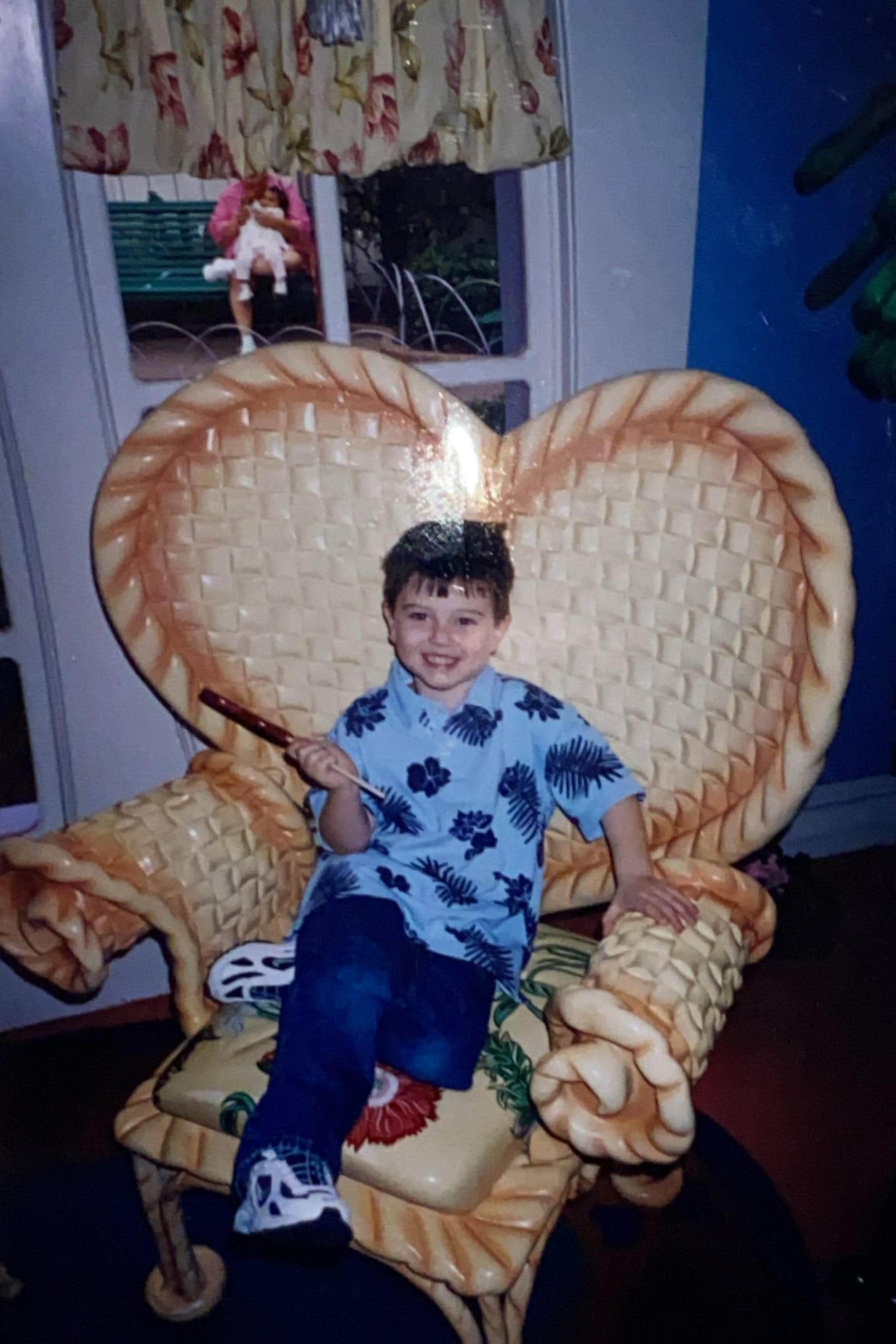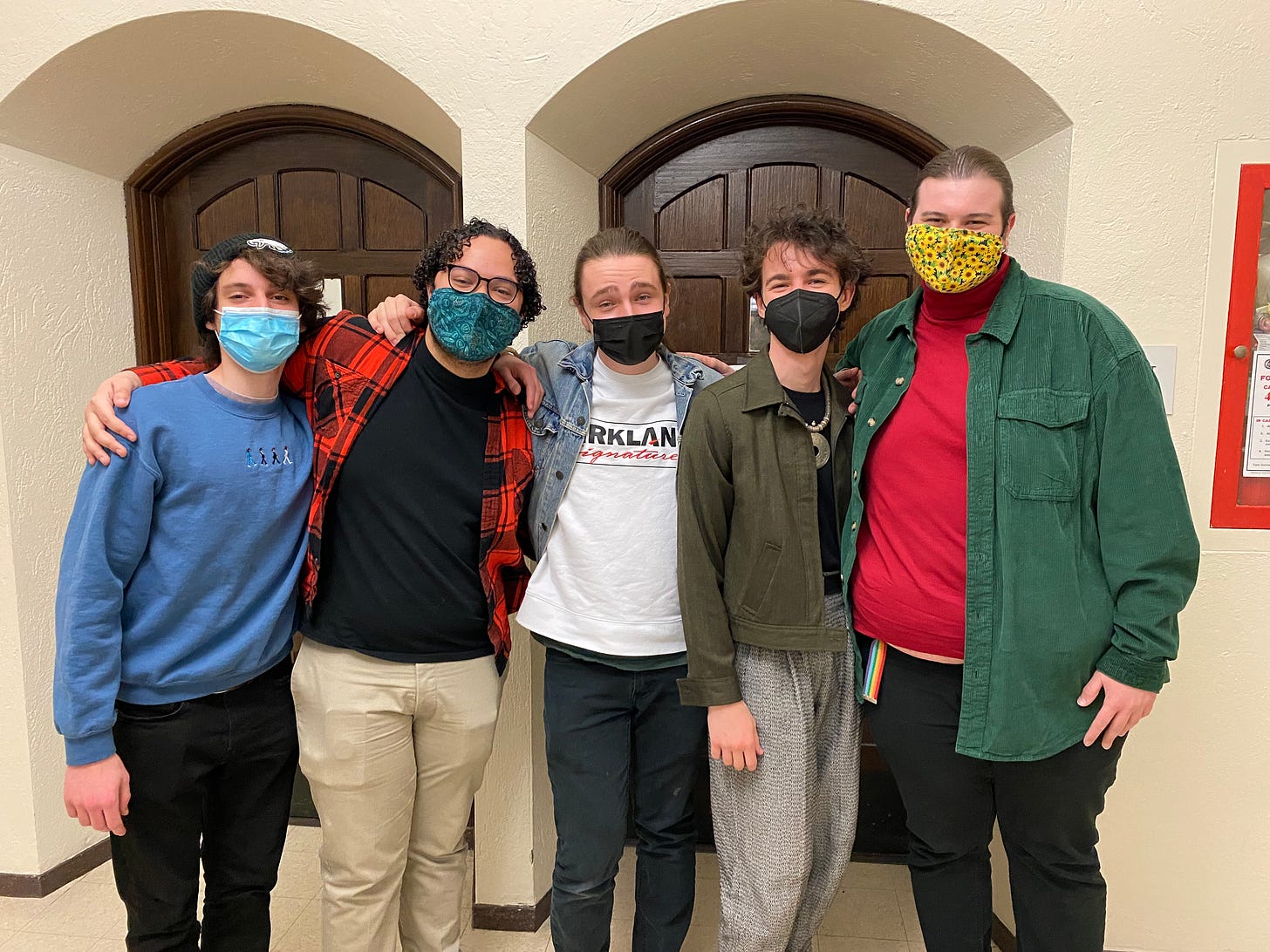To whom it may concern,
I have always been a strong writer. Early in elementary school, whether it came in the form of feedback on one of my assignments or during a parent-teacher conference, I understood that I had great written communication skills. This mattered because I have always been hyper-motivated by academic achievement; in fact, academics were the first aspect of my life where I felt I excelled. I was not athletic like the other little boys but I could get good grades, and writing just became one of the ways in which I earned them. However, I was never really passionate about writing. Sure, I felt passionate about telling the story of the first time I visited a medium and my late grandmother came through, or when I analyzed the trap of womanhood in Shakespeare’s Othello, but the passion came from the topics upon which I wrote, not the writing itself.
In fact, somewhere along the way, I started to view writing as the villain. In school, I wanted to express certain ideas, but I first had to introduce them, formulate an argument, find evidence, etc. Even the most basic ideas needed some kind of empirical backing. While this process granted me invaluable skills, it also made me view writing as an obstacle. Writing became the barrier keeping me from just saying what I wanted to say. Additionally, as a high achieving student, the volume at which I had to churn out pieces of writing in both high school and college left me with a considerable amount of burnout. When I had to produce literally hundreds of pages per semester, instead of asking myself, “how can I explore this idea deeper,” the question was, “how the fuck am I supposed to get this done on time?” Writing was no longer a medium by which I could explore my ideas in a nuanced way; it was a chore.
There were, though, some treasured instances where I enjoyed my chores. Like everyone else, I have made a few attempts at a regular journaling practice throughout my life. I love journaling because, like a time capsule, it takes your thoughts in a certain moment and distills them so you can return to them in another moment. A moment where you might be able to make more sense of them. College also gave me the opportunity to explore some other styles of writing. During my first year of college, I took a writing seminar class where my assignments consisted of personalizing a denim jacket, writing about songs that mean a lot to me, and expanding upon a quote I liked from Stephanie J. Block’s Tony acceptance speech. During my final year of college, I took a playwriting class that allowed me to write about things like class solidarity, sexual awakenings, and family conflict in dramatic form. These experiences taught me that I could explore those topics that interested me in other ways than text-based analyses or argumentative essays. They also taught me that writing could be therapeutic; it didn’t necessarily have to be for an audience, it could just be for me.
Then, as an avowed Anglophile, to borrow a phrase from the Brits, “what’s all this, then?” In the absolute simplest way possible, this is an outlet for my writing. I am calling it a “newsletter,” but I am, by no means, a journalist. I will, however, be talking about news items. I will also be talking about pop culture, media, politics, things that bother me, and basically whatever else I want to. Wherever the inspiration strikes, I want to give myself permission to follow it, write about it, and use my writing as a way to process it. This “processing” can take the form of anything from analyses, to opinions, to something a bit more creative; something you may not see in your typical newsletter. Along the way, hopefully this project will challenge my own depth of analysis, improve my storytelling abilities, and allow me to become a better writer.




